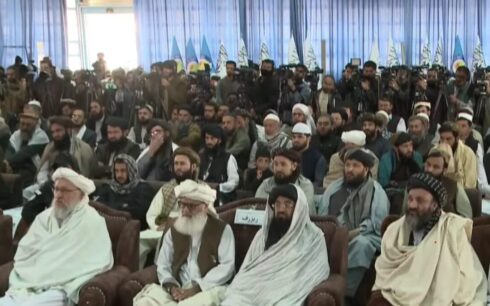MANILA — Nearly 200 Afghan nationals have been resettled in the United States after completing their special immigration visa (SIV) processing in the Philippines, the U.S. Embassy in Manila confirmed on Sunday.
The Afghans, including many children, were flown to the U.S. on commercial flights last week, following an agreement between Manila and Washington. “We express deep appreciation to the government of the Philippines for their cooperation and support for U.S. efforts to assist Afghan special immigrants,” said embassy spokesperson Kanishka Gangopadhyay in a statement.
The Afghan evacuees, many of whom worked for the U.S. government in Afghanistan, arrived in the Philippines on January 6. Their exact numbers and location were kept confidential for security reasons, and the U.S. covered the cost of their stay.
These individuals were among those eligible for SIVs but were left behind after the U.S. and NATO forces withdrew from Afghanistan in August 2021, ending a 20-year war. The chaotic pullout, marked by the Taliban’s swift return to power, exposed Afghan allies of U.S. forces to potential retaliation.
Outgoing President Joe Biden and President-elect Donald Trump have each blamed the other for the disorganized withdrawal, which sparked international criticism.
The resettlement process was part of a temporary agreement reached last year, under which the Philippines hosted a U.S. visa processing center for Afghan evacuees. Philippine officials described the arrangement as a one-time deal, with President Ferdinand Marcos Jr. reaffirming his support for U.S.-led resettlement efforts during a meeting with President Biden last year.
Marcos has strengthened ties with the U.S. since taking office in 2022, allowing an expansion of American military presence under a 2014 defense agreement—a move that has raised concerns in China. The Philippines has also deepened defense partnerships with Japan, Australia, and other nations, aligning with the Biden administration’s strategy to counter China’s assertive actions in the South China Sea, East China Sea, and Taiwan Strait.
The evacuation highlights ongoing efforts to address the plight of Afghan nationals left vulnerable after the Taliban takeover. It also underscores the Philippines’ strategic role in regional security and humanitarian initiatives, as tensions in the Indo-Pacific continue to escalate.





